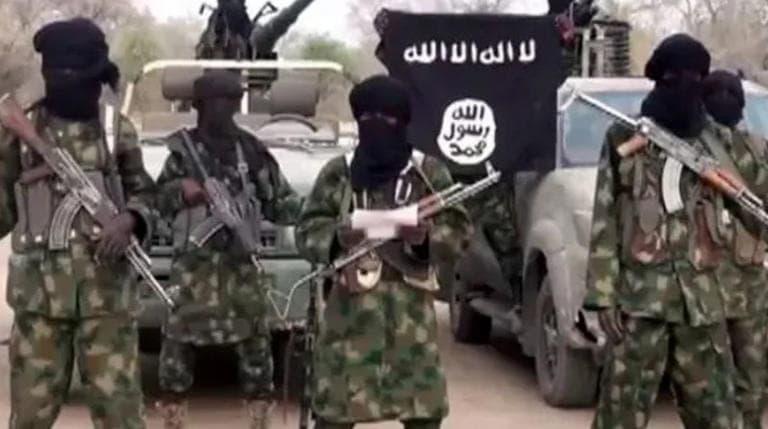
Chad bishops set day of prayer for All Souls following deadly Boko Haram attack
Catholic bishops in Chad, a mixed Muslim/Christian nation in northcentral Africa, have called for a Nov. 2 day of prayer following a Boko Haram attack on a military base last Sunday that left at least 45 soldiers dead.
Gunmen suspected to be Boko Haram fighters attacked the base in the Lake Chad area, near the western part of the country close to the border with Niger, precisely in Ngouboua. The assault reportedly struck at 10:00 pm local time, when Boko Haram members took control of the garrison, seized weapons, burnt vehicles equipped with heavy arms, and then left.
In response, Chad’s roughly 14 Catholic bishops declared Nov. 2 a national day of prayer for peace.
“We strongly condemn these acts of extreme violence, which have once again plunged families and the entire Chadian people into mourning”, declared Archbishop Djitangar Goetbé Edmond of N’Djamena, the national capital, on behalf of the bishops of Chad, expressing the shock and grief felt by the church.
The clerics addressed sympathies both to the bereaved families and to the leadership of the country.
“We extend our sincere condolences to you, Mr. Mahamat Idriss Deby Itno,” referring to the country’s president, “to the government, to the bereaved families and to all the people of Chad.”
The archbishop expressed his wish for lasting peace and urged the faithful to join in prayers for the victims.
“We pray that the Lord God, in his mercy, will grant eternal rest to the victims, heal the injured and console the bereaved families. Prayers will be organized in our various churches for the victims, their families and for peace in our country,” he said.
The clerics called for a Mass intention to be observed for the repose of the souls of the lost soldiers in all the parishes of the dioceses of Chad on Nov. 2, during the traditional Mass for All Souls Day.
Authorities in Chad have promised that the attackers will be hunted down and killed. The Chadian presidency has announced a special operation known as “Haskanite,” aimed at pursuing and tracking down the attackers to their final strongholds.
Sunday’s attack marks one of the most severe incidents faced by Chadian soldiers since 2020, when around 100 soldiers were killed in a raid. That event prompted Déby Itno to initiate an operation known as “Colère de Bohoma,” which led to the killing of at least 1,000 insurgents and the capture of many others.
Boko Haram began its violent campaign in Nigeria in 2009, but the group has since spread to the Lake Chad Basin countries of Niger, Cameroon and Chad. It has resulted in at least 50,000 deaths, 3.2 million people displaced, and 280,000 refugees. In addition, 11.1 million people are considered to be in need of humanitarian assistance as a result of the violence.
Sunday’s attack in Chad was “a mix of surprise, but also something, in a way, not unexpected,” said Remadji Hoinathy a Senior Researcher on the Central Africa and Lake Chad Basin for the Institute for Security Studies (ISS.)
Hoinathy said that, compared to other forces in the region, the Chadian army is the “most resilient.” He argued that they should have built on their past successes, particularly those of “Operation Lake Sanity,” carried out by a Multinational Joint Task Force, which includes contingents from Cameroon, Chad, and Nigeria.
He said the operation “targeted Boko Haram’s remote bases and hideouts on the islands, but also on the swamps and in some of the forests.”
It resulted in the killing of at least 140 insurgents, the arrest of 57 individuals involved in violent extremist activities, and the surrender of 176 Boko Haram fighters and their accomplices. A significant amount of military and logistical equipment was also seized, and several improvised explosive device (IED) production workshops, logistical bases, and insurgent assembly areas were destroyed.
The operation forced the insurgents to disperse “to the borders between Nigeria and Cameroon in the Mandara Mountains” where they have been harassing the population.
Hoinathy said the military should have known that under those circumstances, the insurgents would eventually try to strike back, if for nothing else, but at least “to show their pride and to show that they still have some military capabilities.”
“After the operation ‘Lake Sanity,’ there was a need to sustain the benefits of this operation,” Hoinathy told Crux.
The researcher said Boko Haram remains a very elusive terrorist group to apprehend, because its members master the geography of the area better than anyone else.
“They have a very strong and deep knowledge of the context that some of the armies don’t have,” he told Crux.
“Most of the people who are part of Boko Haram originate from these zones. They grew up there, so they know the context physically, sociologically and culturally. They know how to navigate those islands and those swamps, so they can survive better than the armies “.
“This is why they have a slight advantage in terms of being able to come in, hit and run. And this is something very complicated,” Hoinathy said.
He said a second difficulty for the military is the fact that Boko Haram insurgents actually live in these communities.
“It’s a kind of asymmetric warfare,” he said. “It’s very difficult when you have to fight an enemy that can actually disappear within the communities or to use the communities as a cover,” Hoinathy told Crux.
“All those advantages actually make it very difficult to fight against Boko Haram,“ he said.
Source » cruxnow.com





